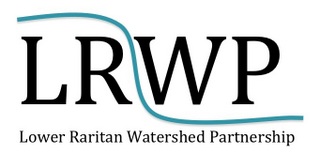LRWP’s Top 10 Environmental Issues, 2019 edition
The Lower Raritan Watershed Partnership is often asked to talk about the most pressing environmental issues facing our Central Jersey watershed communities. Here is our “Top 10” list of cross-cutting concerns for 2019. Starting in February we will feature one concern a month on our website, exploring that issue (and potential solutions) in more detail. We invite you to join in the conversation.
- Poorly coordinated stormwater management, conducted at municipal (not watershed) scales, means that one community’s flood control efforts can lead to another community’s flooding problems.
- Centuries of burying and culverting streams has “disappeared” many waterways, compromising the ability of our landscape to adequately capture and store rain and stormwater runoff.
- Perceptions of safety (poor lighting, litter) around riverfront spaces, and poor signage and access to these spaces, deters use and enjoyment of our waterways. If we don’t know our rivers and streams we won’t grow to love them and act to protect them.
- Failure of aging water infrastructure (culverts, pipes, inlets and outfalls), an urgent safety issue for all our communities, is exacerbated by an increase in precipitation due to climate change.
- Poor control of non-point pollution sources (fertilizers and pesticides from lawns, sediments from development and erosion, oil and grease and road salt from roadways, animal and human waste, dumping of detergents and paints and other chemicals into stormdrains, and litter) results in high chemical levels, bacteria loads and algal blooms in our rivers and streams.
- Loss of biodiversity in our watershed, and a reduction in absolute numbers of insects and flora and fauna, reduces the ability of our ecosystem to cope with threats from pollution, climate change and other human activities.
- State and regional authorities do not have a clear plan to improve knowledge of the health of the Raritan and its tributaries, and do not model pollutant loads for our watershed.
- Recent federal rollbacks of requirements for oil and gas reporting may result in increased methane emissions and open the door to more pipelines that fragment and threaten habitat.
- Federal policies that extend the offshore fishing season and increase allowances in catch rates for commercial fishing reduce numbers of anadromous migratory fish in the Raritan, affecting the food chain.
- Limited regional cooperation, a “home rule” focus, and lack of collaborative action and capacity building results in a slow pace of restoration and improvements in our watershed, particularly in low income communities and communities of color.
- Check with your local Environmental Commission or Green Team for information about specific source impacts and development pressures in your community.
